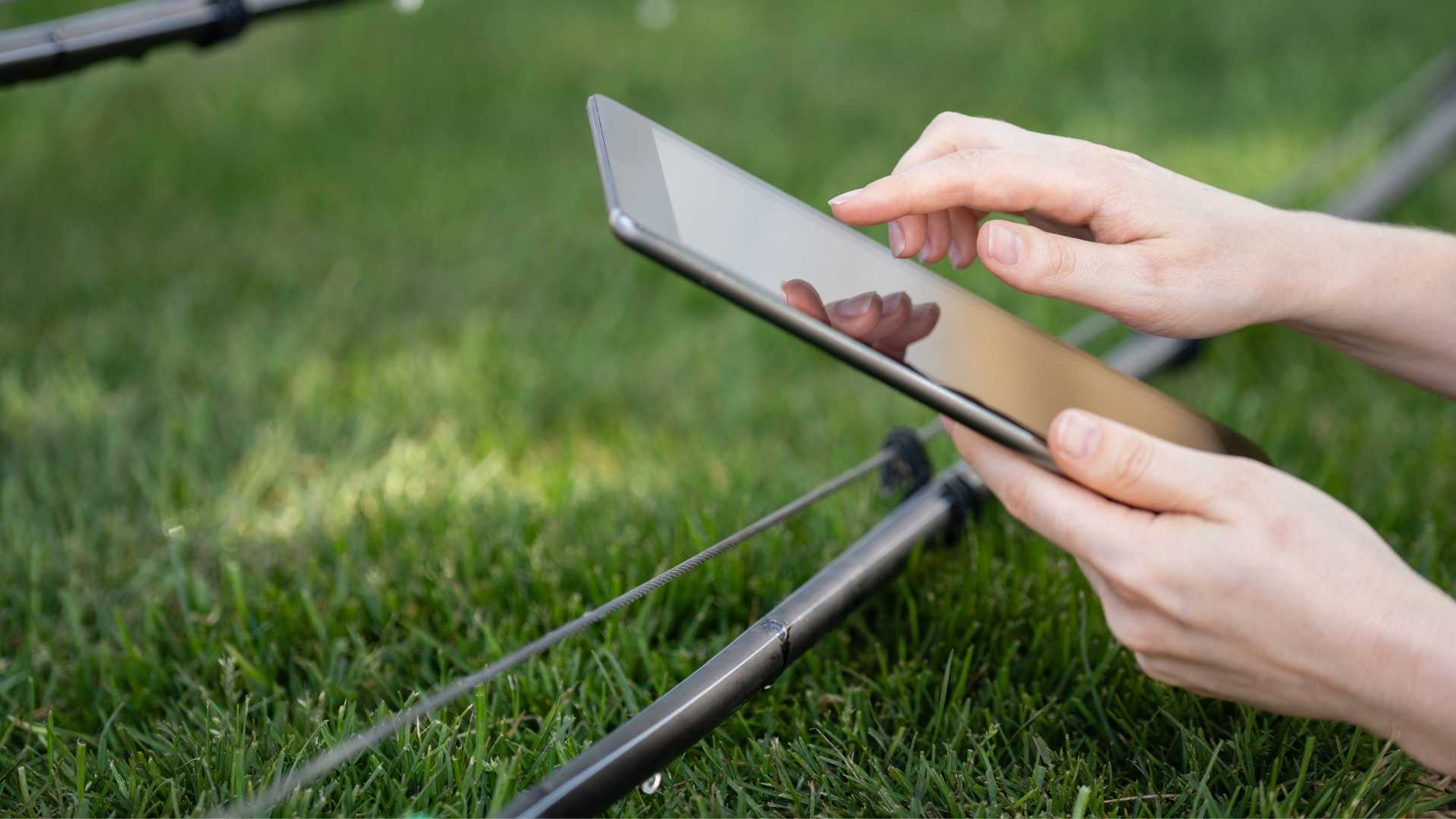Efficient water management and flow control are essential across agriculture, industry, and residential systems. A water flowmeter is a device that measures the flow rate of water through pipelines, providing instant and accurate data. By determining the speed and volume of water, water flowmeters ensure the optimal performance of systems. In smart irrigation solutions like T-Irrigate, water flowmeters play a critical role in delivering the right amount of water at the right time for agricultural efficiency.
Let’s Talk – Share Your Contact Information!
How Does a Water Flowmeter Work?
A water flowmeter functions by measuring the velocity of liquid passing through it and converting that into a flow rate. The working principle of a water flowmeter typically involves the following stages:
- Magnetic or mechanical detection: The flow of water is detected using mechanical parts (like a turbine) or magnetic fields.
- Signal conversion: The detected flow is converted into electronic signals using internal components.
- Data transmission: The flowmeter transmits real-time water usage data to a digital display or smart irrigation platform.
In automated irrigation systems like T-Irrigate, water flowmeters enable farmers to track when irrigation starts and stops. This prevents overwatering, supports precise irrigation planning, and promotes sustainable water use.

What Is the Purpose of a Water Flowmeter?
Water flowmeters are widely used in many sectors and offer critical benefits:
- Agricultural irrigation management: Integrated with smart irrigation systems, water flowmeters help save water and deliver the optimal volume for plant growth.
- Industrial water control: Ensure accurate water usage in production processes.
- Residential water systems: Monitor and reduce excessive water consumption in households.
- Greenhouses and hydroponics: Allow precise water control to match plant needs in controlled environments.
Thanks to the solutions provided by T-Irrigate’s water flowmeters, water waste is minimized in agricultural irrigation, supporting both productivity and sustainability.
Types of Water Flowmeters
Different water flowmeter types are available based on the technology used:
- Mechanical Water Flowmeters: Use rotating propellers or turbine systems to measure flow rate.
- Ultrasonic Water Flowmeters: Measure flow by sending sound waves through the water, offering high precision.
- Electromagnetic Water Flowmeters: Detect water movement using magnetic fields and are ideal for larger pipe systems.
The most suitable agricultural water flowmeter should be chosen based on irrigation infrastructure and specific needs. T-Irrigate’s smart irrigation systems are compatible with various types of water flowmeters to optimize water use in the field.
Key Features of Water Flowmeters
- Real-time monitoring: Track water consumption instantly via integrated systems.
- High accuracy: Prevents water loss and supports efficient irrigation.
- Durable design: Built to withstand tough agricultural conditions.
- IoT & cloud integration: Compatible with smart farming platforms for remote management.
A water flowmeter is an essential component for optimizing water management in modern agriculture. Water flowmeter prices vary depending on the technology and sensor type, but the investment pays off in long-term water savings and productivity. T-Irrigate systems are equipped with the best irrigation flowmeters to ensure smart and sustainable farming.
Choose T-Irrigate’s intelligent solutions today and take control of your water usage with precision — contributing to efficient farming and a more sustainable future.

